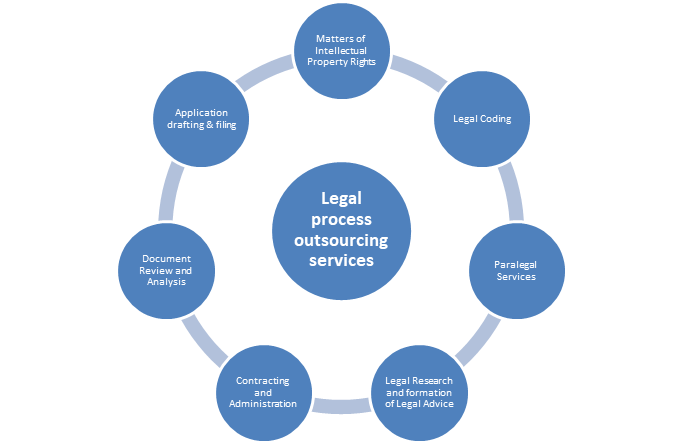
Legal Process Outsourcing
Legal Process Outsourcing (popularly known as LPO) is a practice in which a law firm or company receives legal services from an independent law firm or an outsourcing provider of legal processes.
Since attorneys in the countries like USA, UK and Europe are quite expensive; therefore corporate houses located in these countries outsource their legal work to countries that are less expensive. A corporate saves huge costs by outsourcing the legal work.
India is one of the most sought-after places for outsourcing legal work. In India, the LPO sector has grown tremendously, and many investors want to enter this sector.
Choosing India for Legal Process Outsourcing
The price of getting legal proceedings is very high in developed countries, as the lawyers charge a high amount of fee. This is the reason why a lot of legal work from the developed nations gets outsourced to India.
Furthermore, these are the following reasons:
- Legal professionals Availability
- Good English language proficiency
- Exposure to foreign laws
- Assists regional assignments
- Cost saving
- Excellent IT Infrastructure and schemes facilitated by the government
- Availability of staff 24*7 with foreign qualification
Pricing Models by LPO
Fixed rate:
A fixed price is charged for the whole duration of a project in this model. However, it may be possible to allow a little flexibility in prices according to market conditions.
Variable Pricing:
In this type of pricing model, the cost of the project depends on the current market conditions.
Pay per Unit:
In this unit, the cost is paid for each part of the project at a pre-determined sum. Depending on the amount of research and complications involved, the different parts of the design can be priced differently.
Cost plus Profit:
In the form of a fixed percentage of the project, the entity outsourcing work must pay additional charges. In terms of changing business technologies / objectives, this model is not very flexible.
Profit and Risk Sharing:
The organization and the business work as a partnership in this arrangement and share profit and loss equally.
Computing Outsourcing Cost
It is crucial for the company to see whether the outsourcing of legal work will be profitable or not. This can be checked by the following ways:
Analysis of outsourcing costs:
The total outsourcing costs can be verified as a percentage of a company's total operating costs. Cost analysis can be carried out in the form of pie charts or other analytical tools to compare the cost of outsourcing with all other cost of business.
Return on Investment:
It is essential that the organization's outsourcing work continues to monitor market conditions and other companies to ensure value for money. Business models and pricing continue to change from time to time, and it is important to take note of the latest developments.
Evaluation of savings:
Through outsourcing the legal work, the organization can verify how much money it saves. The comparison can be made through measuring the cost of obtaining the home country legal work with the amount of outsourcing work is spent
Additionally, the company may choose to outsource the legal work in sections instead of the whole task. The decision can be made through a project-related evaluation of maximum cost savings.
A company can therefore outsource the portion where it will make maximum cost savings. Alternatively, if you are satisfied with the company's work to which the job has been outsourced; you can outsource larger projects to save greater costs.
